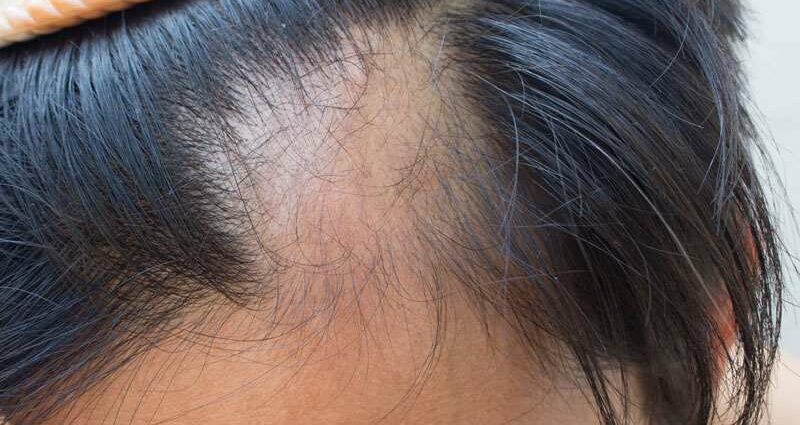Alopecia areata: complementary approaches
Processing | ||
aromatherapy | ||
Hypnotherapy, dietary recommendations | ||
Essential oil of thyme, rosemary, lavender and Atlantic cedar. Results from a double-blind, placebo-controlled study indicate that a blend of rosemary essential oils (Rosmarinus officinalis), lavender (Lavandula angustifolia) thyme (Thyme vulgaris) and Atlantic cedar (Cedrus atlantic) can stimulate hair regrowth in people with alopecia areata1. The 86 affected subjects applied the mixture of essential oils every day, for 2 minutes, massaging their scalp, then put on a hot towel to increase absorption. This study, which lasted 7 months, nevertheless has weaknesses: for example, nearly a third of the subjects in the placebo group discontinued the treatment before the end of the study.
Dosage
The preparation used during this study: put 3 drops of EO of rosemary, 2 drops of EO of thyme, 3 drops of EO of lavender and 2 drops of EO of Atlantic cedar in 23 ml of vegetable oil (3 ml of jojoba oil and 20 ml of grapeseed oil).
Notes. This treatment should be tried under the proper supervision of an aromatherapist. See our Aromatherapy file.
Hypnotherapy. American doctor Andrew Weil believes that hypnotherapy, or any other form of body-mind approach, can be particularly useful in cases of alopecia areata2. He claims that several autoimmune diseases tend to be exacerbated in response to stress or strong emotions. According to him, children respond better to hypnosis than adults.
Food recommendations. The Dr Weil also suggests some dietary changes for people with alopecia areata or another autoimmune disease.2 :
– to eat less protein (not to exceed 10% of the total calorie intake);
– favor proteins of plant origin (legumes, tofu, nuts, seeds and cereal products);
– stop consuming milk and dairy products and replace them with other sources of calcium;
– to eat more fruits and vegetables, preferably from organic farming;
– use extra virgin olive oil as the main source of fat (ban vegetable oils rich in polyunsaturated fatty acids, margarine, shortening, trans fats);
– increase the intake of omega-3 fatty acids (mackerel, salmon, sardines, herring, flax seeds, etc.).










